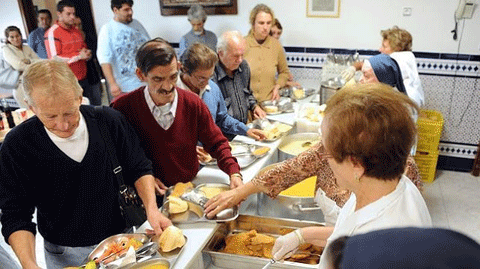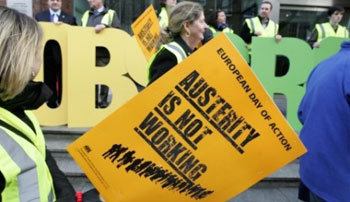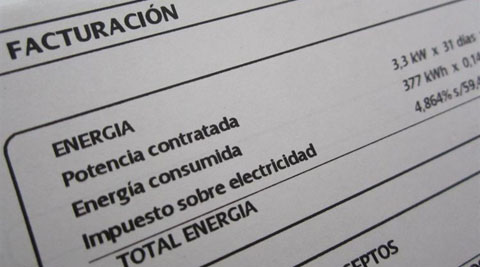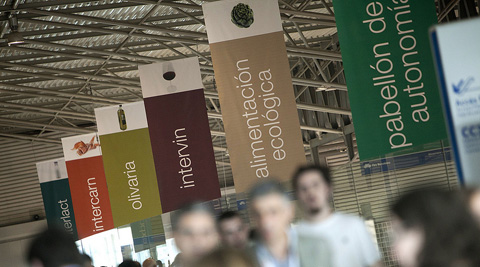INDIA LEADSHIP FACES TOUGH TIME.
Write up at pr-inside.com.
By Naresh Sagar
When India goes for poll there is complete chaos in leadership as the two term of UPA has brought more unemployment and inflation to this part of world.citizens are looking for better governance of their country but show lot of desperation public meet.
The first phase of election to begin on 10 April this month is straight TV war between Congress and BJP and the third force injected by the Indian media is AAP which too is showing the path to the new entrants a way to bring some changes in their own style.Aap could have been potent force if their self style leader ,convened Arvind would have worked with people verdict in city state of Delhi but his greed for higher national space left his legislatures and people in lurch.
India with 30states and 5UT has equal number of parties ruling the regions and has their strength within their regions.Coalition government from 1976onwards has been not very good recipe for the people of India but now with lots of experience of coalition politics the emergence of BJP with its strong cadre of RSS is taking great initiative to bring nationalism debate riding above regionalism which appears to be better thinking for the nation.
When US And NATO forces leave Afghanistan India needs to be ruled by a strong leader to give befitting place of its own in South Asia and central Asiia thus essentially India needs to rule with strong nationalism spirit.
Election in Afghanistan within this week shall also bring sea change in this region when democracy shall be restore in better way and more Afghans to participate in their nation building in such scenario the relation between Infia,China,Pakistan and Afghanistan needs better structuring to enhance the business and restore the silk route.
Results of Indian election will be out on 16 May 2014 who shall rule this vast democracy for welfare of 170Cr people to bring happiness glory onto them
Thus in the meantime dabbling and babbling in India between leaders goes on.
India with 30states and 5UT has equal number of parties ruling the regions and has their strength within their regions.Coalition government from 1976onwards has been not very good recipe for the people of India but now with lots of experience of coalition politics the emergence of BJP with its strong cadre of RSS is taking great initiative to bring nationalism debate riding above regionalism which appears to be better thinking for the nation.
When US And NATO forces leave Afghanistan India needs to be ruled by a strong leader to give befitting place of its own in South Asia and central Asiia thus essentially India needs to rule with strong nationalism spirit.
Election in Afghanistan within this week shall also bring sea change in this region when democracy shall be restore in better way and more Afghans to participate in their nation building in such scenario the relation between Infia,China,Pakistan and Afghanistan needs better structuring to enhance the business and restore the silk route.
Results of Indian election will be out on 16 May 2014 who shall rule this vast democracy for welfare of 170Cr people to bring happiness glory onto them
Thus in the meantime dabbling and babbling in India between leaders goes on.
| Contact Information: Sagar Media IncNew DelhiContact Person: Naresh Sagar Founder Director Phone: 9810974027 email: email |
PROFESSIONAL GOLF RETURNS TO COIMBATORE WITH THE PGTI PLAYERS CHAMPIONSHIP AT COIMBATORE GOLF CLUB
1042014
Professional golf returns to Coimbatore with the PGTI Players Championship at Coimbatore Golf Club
Prize Money of Rs. 30 lakh
缳pan> Top names in the field include Rashid Khan, Mithun Perera, Chiragh Kumar, Chikkarangappa
Coimbatore, April 1, 2014: The Professional Golf Tour of India (PGTI) has announced the PGTI Players Championship at Coimbatore Golf Club which will be held from April 2 – 5, 2014. The tournament carries a total prize purse of Rs. 30 lakh and witnesses the return of professional golf to the city of Coimbatore after two years.
The field will feature a total of 120 professionals and five amateurs. Some of the top professionals participating are reigning Rolex Rankings champion and defending champion Rashid Khan, Chiragh Kumar, Mukesh Kumar, Chikkarangappa, Angad Cheema, M Dharma, Harendra Gupta, Om Prakash Chouhan and Shankar Das, to name a few. Karan Taunk, one of India’s top amateurs, will play his first event as a professional at Coimbatore.
The field also features foreign professionals such as Mithun Perera (Sri Lanka), N Thangaraja (Sri Lanka), Shivaram Shrestha (Nepal) and Md Zamal Hossain Mollah (Bangladesh), to name a few.
The local challenge will be led by Coimbatore-based professionals Joseph Chakola, S Muthu, Ilayaraja C and M Rajesh Kumar.
The last edition of the PGTI Players Championship at Coimbatore witnessed a thrilling finale as Rashid Khan claimed a playoff victory against Vikrant Chopra to clinch his first professional title on Indian soil.
Mr. R Shyam Sunder, Golf Captain, Coimbatore Golf Club, said, “Coimbatore Golf Club is happy to welcome the PGTI golfers. The course is at its best since inception and is sure to challenge the golfers’ skills. The summer heat this year is an addition to the famous winds of Coimbatore.”
Mr. Padamjit Sandhu, Director, PGTI, added, “We look forward to returning to the Coimbatore Golf Club after two years. The strong field and tough playing conditions are likely to produce an exciting week of golf. Coimbatore has over the years been an important centre for golf in India and it will be our endeavour to further promote professional golf in the region in partnership with the Coimbatore Golf Club.”
Founded in 1977 by leading industrialist Mr. K Rajagopal, the Coimbatore Golf Club has emerged as an important golfing centre in south India in recent years. This club is home to one of the most scenic courses in the country. The narrow fairways, lined by thick bushes and well-placed hazards make the course challenging. The undulating greens are huge and fast.
About PGTI:
Formed in 2006, Professional Golf Tour of India (PGTI) is the recognized official body of professional golf in India. PGTI’s objective is to promote professional golf in the country, as well as to give players an opportunity to be involved in the decision-making on all aspects of the game. Headed by Mr. Gautam Thapar (President), PGTI’s governing body comprises leading Indian golf professionals. PGTI currently has over 300 members.
DELHI ELECTION CAMPAIGN SCHEDULE OF AAP LEADERS FOR WEDNESDAY, APRIL 2
1042014
Delhi election campaign schedule of AAP leaders for Wednesday, April 2
Arvind Kejriwal :
10 AM : Road show with party’s East Delhi Lok Sabha candidate, Rajmohan Gandhi. It will begin from the Geeta Colony, Yamuna Pushta Road near Safeda Jhuggi. It will then proceed to other parts of the constituency.
6:30 PM : Public meeting for party’s North West Delhi Lok Sabha candidate Rakhi Birla. Venue : Balmiki Chowk, D Block Mangolpuri. (Nearest Metro station : Peera Gadi)
Manish Sisodia :
7 AM -9 AM : Padyatra in Jangpura (East Delhi constituency)
10 AM : Road show in Chandni Chowk
6 PM : Public meeting Kasturba Nagar (New Delhi)
8 PM : Public meeting RK Puram (New Delhi)
Regards
AAP Media Cell
PGTI NEWSLETTER – MARCH 2014.
1042014
FIRST BI-MONTHLY MONETARY POLICY STATEMENT, 2014-15-RBI MAINTAINS STATUS QUO
1042014
First Bi-monthly Monetary Policy Statement, 2014-15
RBI maintains status quo
RBI in its First Bi-monthly Monetary Policy Statement, 2014-15 has kept the cash reserve ratio (CRR) of scheduled banks unchanged at 4% of net demand and time liability (NDTL) and the policy repo rate under the liquidity adjustment facility (LAF) unchanged at 8%. Consequently, the reverse repo rate under the LAF stands unchanged at 7%, and the marginal standing facility (MSF) rate and the Bank Rate at 9%.
The RBI policy rates so far
| Components | Sep-10 | Sep-11 | Sep-12 | Sep-13 | 29-Oct-13 | 18-Dec-13 | 28-Jan-14 | 1-April-14 |
| CRR | 6.00% | 6.00% | 4.50% | 4.00% | 4.00% | 4.00% | 4.00% | 4.00% |
| Repo Rate | 5.75% | 8.25% | 8.00% | 7.5% | 7.75% | 7.75% | 8.00% | 8.00% |
| Reverse Repo Rate | 4.50% | 7.25% | 7.00% | 6.5% | 6.75% | 6.75% | 7.00% | 7.00% |
| WPI Inflation | 8.90% | 9.80% | 7.50% | 6.1% | 6.5% | 7.5% | 6.2%@ | 4.7%^^ |
| IIP growth | 13.00% | 3.30% | 0.10% | 2.6% | 0.6% | (-)1.8% | (-)2.1%** | 0.1% *** |
| Real GDP growth | 8.90% | 7.7%ˆ | 5.50%”’ | 4.4% | 4.4% | 4.8% | 4.8%# | 4.7%## |
Snapshot of First Bi-monthly Monetary Policy Statement 2014-15
Since the Third Quarter Review of January 2014, global activity appears to have moderated on slower growth in the US, the UK and Japan, continuing sluggishness in the Euro area and a subdued pick-up in emerging and developing economies, restrained by the uncertain external demand environment as well as by localised cyclical and structural constraints. For a number of emerging markets, further tightening of external financing conditions and renewed volatility of capital flows are the biggest risks to their outlook. Going forward, global growth is likely to strengthen in the rest of the year, with risks tilted to the downside.
On the domestic front, real GDP growth continued to be modest in Q3 of 2013-14, with some strengthening of activity in services such as trade, hotels, transport and communication, and financing, real estate and business services. Despite some positive movement in more recent data, industrial activity continues to be a drag on the economy, with retrenchment in both consumption and investment demand reflected in the contraction of output of consumer durables as well as capital goods. In the quarters ahead, the boost provided by robust agricultural production in 2013 may wane. Moreover, the outlook for the 2014 south-west monsoon appears uncertain. Sluggishness in industrial activity, exports and several categories of services underlines the need to revitalise productivity and competitiveness.
The Indian Economy– While the global environment remains challenging, policy action in India has rebuilt buffers to cushion it against possible spillovers. These buffers effectively bulwarked the Indian economy against the two recent occasions of spillovers to emerging market and developing economies; the first, when the US Fed started the withdrawal of its large scale asset purchase programme and the second, which followed escalation of the Ukraine crisis. On both these occasions, Indian markets were less volatile than most of its emerging market peers. With the narrowing of the twin defi cits – both current account and fiscal – as well as the replenishment of foreign exchange reserves, adjustment of the rupee exchange rate, and more importantly, setting in motion disinflationary. Growth stays low, structural constraints affect potential output– Growth in the Indian economy had been shifting down from 9.6% in Q4 of 2010-11. It troughed around 4.4% for three quarters from Q3 of 2012-13 to Q1 of 2013-14. Since then there are signs of growth bottoming out with marginal improvement recorded during Q2 and Q3 of 2013-14 to 4.8 and 4.7% respectively. However, this improvement has been feeble and clear signs of recovery are yet to emerge, even as the economy seems to be gearing for a modest recovery during 2014-15. The downward spiral in growth caused in large part by structural factors that impeded investment activity had a profound effect on India’s potential growth.
Agriculture sector witnessed record production– The satisfactory monsoon and the absence of extreme climatic events until lately augur well for agricultural production and rural demand. Adequate replenishment of soil moisture and reservoirs signifi cantly boosted crop production during 2013-14. As per the second advance estimates, the production of rice, wheat, pulses, oilseeds and cotton during 2013-14 have been estimated to be the highest ever. However, preliminary reports suggest that the unseasonal rains accompanied by hailstorm, and frost during early March 2014 in various parts of the country has adversely affected rabi crops like wheat, mustard seeds, onions and jowar.
Industrial growth stagnating– The Index of Industrial Production (IIP) showed no increase during April-January 2013-14, compared with 1.0 per cent growth in the corresponding period of the previous year. This stagnation in growth over two years reflects subdued investment and consumption demand. This has resulted in contraction in production of capital goods and consumer durables in the current year. Output of basic metals, fabricated metal products, machinery and equipment, motor vehicles, food products, gems and jewellery and communication equipment recorded a decline.
Modest recovery likely to shape in 2014-15– A moderate recovery is likely to set in 2014-15 broadly in line with the Reserve Bank’s indicated projections in January 2014. The recovery is likely to be supported by investment activity picking up due to part resolution of stalled projects and improved business and consumer confidence. Contingent upon the desired inflation outcome, real GDP growth is projected to pick up from a little below 5 per cent in 2013-14 to a range of 5 to 6 per cent in 2014-15
Quarterly projection of GDP growth (y-o-y) 2014-15
Source: RBI
The outlook for the Indian economy has improved over the past two months with cautiously positive business sentiments, improved consumer confidence, expectations of a modest recovery in growth and decline in inflation expectations. The challenge for maintaining disinflationary momentum over the medium term, however, remains. GDP growth at 4.7 per cent in Q3 of 2013-14, was slightly higher than that in the corresponding quarter of the previous year, but it has not been enough to suggest that the advanced estimates of 4.9 per cent during 2013-14 could be realised. The economy will now have to record a 5.5 per cent growth in Q4 to realise that growth, which on current assessment looks difficult.
Inflation–Since December 2013, the sharper than expected disinflation in vegetable prices has enabled a sizable fall in headline inflation. Looking ahead, vegetable prices have entered their seasonal trough and further softening is unlikely. Meanwhile, CPI inflation excluding food and fuel has remained flat. There are risks to the central forecast of 8% CPI inflation by January 2015 stemming from a less-than-normal monsoon due to possible el nino effects; uncertainty on the setting of minimum support prices for agricultural commodities and the setting of other administered prices, especially of fuel, fertiliser and electricity; the outlook for fiscal policy; geo-political developments and their impact on international commodity prices. There will also be a downward statistical pull on CPI inflation exerted by base effects of high inflation during June-November 2013.
Projection of CPI inflation (y-o-y) 2014-15
Source: RBI
Going forward, while the global commodity price scenario provides some comfort, the pace of deceleration in inflation may decline from what has been witnessed in recent months. This is because of the seasonal correction in vegetable prices likely having played itself out and supply-side responses remaining weak. In addition, significant month to-month changes in base effect have a propensity to distort the underlying inflationary trajectory ahead. After some rise in the near months, headline inflation(WPI) is expected to trend down aided by favourable base effects. It may bottom out in Q3 of 2014-15 before large adverse base effects and expected improved activity take inflation back to around the current levels. Risks to inflation are more on the upside. They largely emanate from any adverse outcome on the monsoon, resurfacing of geopolitical risks that could lift commodity prices, sharper-than-anticipated tapering that could lead to exchange rate pass-through pressures and return of pricing power as the output gap narrows.
Warm regards,
Dr. S P Sharma
Chief Economist
‘HISTORY, MEMORY AND THE CITY: AN URBAN PLANNER’S VIEW’
1042014
Nehru Memorial Museum and Library
cordially invites you to a Public Lecture
(in the ‘Cities in History’ series)
at 3.00 pm on Wednesday, 2 April, 2014
in the Seminar Room, Library Building
on
‘History, Memory and the City:
An urban planner’s view’
by
Dr. Neema Kudva,
Cornell University,
USA.
Abstract:
Planners work in the present through a vision of the future, while historians work in the present looking to explain the past. Regardless of whether we plan cities or uncover histories, our work is bounded by those who hold power to structure the public imagination and produce particular narratives. It is equally bounded by the evidence we seek in order to engage: from surveys, censuses, archives, and narratives rooted in memory and forgetting. Drawing on her work exploring growth and planning in the city of Mangalore, the speaker will explore the intersections between planning and history. We are all familiar with the instrumental use of selected historical fragments to justify preservation and restoration of monuments and places. As planners, particularly in some parts of the world, the urge to establish continuity of place and memory is strong. And yet, the diversity and mobility that is at the heart of cities every where, and the vision of the future that often seeks to displace the past is often central to the work of making the city. In the fast growing smaller cities of India, we often have few and fragmented recorded histories, narratives and counter-narratives to work through or against. How then do we begin to understand history, memory and the city?
Speaker:
Dr. Neema Kudva is Associate Professor of City and Regional Planning at Cornell University, USA. She directs the International Studies in Planning Programme and is faculty lead of the interdisciplinary Nilgiris Field Learning Center, a collaborative project of the Keystone Foundation and Cornell University. Her recent research focuses on international urbanization, particularly issues related to small cities and their regions, and on institutional structures for equitable planning and development at the local level. Dr. Kudva is co-editor of the Cities of the Global South Reader (with Faranak Miraftab, in press 2014), Rethinking Informalization (with Lourdes Beneria, 2005) and is working on a monograph on planning in the South Indian city, Mangalore.
Website links:
City and Regional Planning at Cornell Universityhttp://www.aap.cornell.edu/crp/
Nilgiris FLC https://blogs.cornell.edu/nflc/
ICAN E-NEWS
1042014
| ||||||||||||||||||||||||||||||||||
| ||||||||||||||||||||||||||||||||||
| ||||||||||||||||||||||||||||||||||
Intercession, Awareness, Activism, Action …
This e-journal specifically highlights and documents persecution and violation of human rights of Christians, Minorities, Schedule Caste/Tribes and Other Backwards, urging you to at least – PRAY. Our aim is to identify fundamentalists and those disrupting communal harmony and indigenous communities – posing a threat to a just, equal, plural and secular citizenry. We oppose any kind of discrimination and oppression, whether of race, religion, culture, gender etc. specially when it comes from some of our own. Please pray for the following local, state, national, regional and international situations.
| ||||||||||||||||||||||||||||||||||
BOLETÍN INFORMATIVO. MARTES 1 DE ABRIL 2014.
1042014
 | |||||||||||||||||||||||||||||||||||||||||||||||||||||||||||||||||||||||||||||||||||||||||||||||||||||||||||||||||||||||||||||||||||||||||||||||||||||||||||||||||||||||||
|
GUJARAT COW MILK FARMERS PAID RS.18 P.L. – RETAILED FOR RS.48
1042014
Gujarat Cow Milk Farmers Paid Rs.18 P.L. – Retailed for Rs.48
April01, 2014
April01, 2014
Most of the milk produced in Gujarat is sold by producers to
Cooperatives and other dairies – GCMMF Union procures half of the milk
produced in Gujarat.
Cooperatives and other dairies – GCMMF Union procures half of the milk
produced in Gujarat.
Cow milk contains 3% to 4% fat and Gujarat farmers were paid just
Rs.15 to Rs.20 per kg for Cow Milk. [Rs.495 x 3% or 4%]
Rs.15 to Rs.20 per kg for Cow Milk. [Rs.495 x 3% or 4%]
Milk was retailed for Rs.45 to Rs.48 per Liter for standard and full
cream milk.
cream milk.
What is important to mention here is that Buffalo milk has higher fat
Content of 6% to 7% yield much better returns – Rs.30 to Rs.35 per
liter at 2013-14 rates.
Content of 6% to 7% yield much better returns – Rs.30 to Rs.35 per
liter at 2013-14 rates.
Cow needs better care and protection and more fodder because of much
higher unproductive numbers of cattle.
higher unproductive numbers of cattle.
Ravinder Singh, National General Secretary.
Sabka Bharat Mission 2019
Y-77, Hauz Khas, New Delhi -110016
Ph: 9650421857, 9718280435
Sabkabharatmission2019@gmail.com
Sabka Bharat Mission 2019
Y-77, Hauz Khas, New Delhi -110016
Ph: 9650421857, 9718280435
Sabkabharatmission2019@gmail.com
Porbander milk union is 18th member of GCMMF
According to GCMMF, milk producers of Porbandar have formed Porbandar
District Cooperative Milk Producers’ Union Limited based on Amul model
According to GCMMF, milk producers of Porbandar have formed Porbandar
District Cooperative Milk Producers’ Union Limited based on Amul model
BS Reporter Ahmedabad March 28, 2014 Last Updated at 20:57 IST
Milk producers of Porbandar district have joined hands to form
Porbandar District Cooperative Milk Producers’ Union Limited (Sudama
Dairy) and become part of the largest cooperative dairy federation
Gujarat Cooperative Milk Marketing Federation (GCMMF) which owns and
markets products under brand of Amul. Sudama Dairy has become the 18th
milk union to join GCMMF.
Porbandar District Cooperative Milk Producers’ Union Limited (Sudama
Dairy) and become part of the largest cooperative dairy federation
Gujarat Cooperative Milk Marketing Federation (GCMMF) which owns and
markets products under brand of Amul. Sudama Dairy has become the 18th
milk union to join GCMMF.
According to GCMMF, milk producers of Porbandar have formed Porbandar
District Cooperative Milk Producers’ Union Limited based on Amul model
and it has become operational from March 22, 2014. “Porbandar Milk
Union has federated with GCMMF as 18th Cooperative Milk Union,” a
GCMMF statement said.
District Cooperative Milk Producers’ Union Limited based on Amul model
and it has become operational from March 22, 2014. “Porbandar Milk
Union has federated with GCMMF as 18th Cooperative Milk Union,” a
GCMMF statement said.
Estimated milk production in Porbander district was around 400,000
litre per day. The Porbandar Milk Union plans to procure around
200,000 litre per day milk from the district with in next two years.
This would provide around Rs. 300 crore per annum to milk producers in
villages of Porbandar district, encouraging milk producers to develop
their milk business.
litre per day. The Porbandar Milk Union plans to procure around
200,000 litre per day milk from the district with in next two years.
This would provide around Rs. 300 crore per annum to milk producers in
villages of Porbandar district, encouraging milk producers to develop
their milk business.
After being affiliated to GCMMF, Porbandar Milk Union has initiated
milk procurement activities in villages and milk producers of the
district have responded well to this activity. The union plans to
cover all the villages of the district under village dairy cooperative
societies network in near future. It has also established modern dairy
plant for milk processing at cost of Rs. 3 crore in GIDC, Porbandar.
milk procurement activities in villages and milk producers of the
district have responded well to this activity. The union plans to
cover all the villages of the district under village dairy cooperative
societies network in near future. It has also established modern dairy
plant for milk processing at cost of Rs. 3 crore in GIDC, Porbandar.
It has started ultra modern processing and milk procurement through
automatic milk collection system, and milk producers have got
remunerative price and market for milk at their doorstep.
automatic milk collection system, and milk producers have got
remunerative price and market for milk at their doorstep.
Till now, many private vendors were procuring milk from Porbandar
district and as a result there was lot of variation in milk prices and
quantity being purchased by these vendors throughout the year.
district and as a result there was lot of variation in milk prices and
quantity being purchased by these vendors throughout the year.
Because of fluctuating market and high variation in milk price, milk
producers were not encouraged to develop their dairy business. At
present, milk producers in Porbandar are getting milk price of around
Rs. 495 per kg fat of milk. With establishment of Porbandar Milk
Union, those affiliated with the union, are being paid price of Rs.
550 per kg of fat, which is highest milk procurement price in the
district.
producers were not encouraged to develop their dairy business. At
present, milk producers in Porbandar are getting milk price of around
Rs. 495 per kg fat of milk. With establishment of Porbandar Milk
Union, those affiliated with the union, are being paid price of Rs.
550 per kg of fat, which is highest milk procurement price in the
district.
Jewel of Kathiawar enters Amul family
Prashant Rupera | TNN
Prashant Rupera | TNN
Vadodara: The jewel of Kathiawar, Jamnagar, will soon join the US $
4.4 billion Amul family. After federating the district milk union of
Porbandar, the birthplace of Mahatma Gandhi, Gujarat Co-operative Milk
Marketing Federation (GCMMF) that markets brand Amul is all set to
bring Jamnagar milk union under its umbrella.
4.4 billion Amul family. After federating the district milk union of
Porbandar, the birthplace of Mahatma Gandhi, Gujarat Co-operative Milk
Marketing Federation (GCMMF) that markets brand Amul is all set to
bring Jamnagar milk union under its umbrella.
Interestingly, once Jamnagar district milk union becomes the 19th
member union of GCMMF, the apex body of all the district dairy unions
of Gujarat will have all the regions of Gujarat covered.
member union of GCMMF, the apex body of all the district dairy unions
of Gujarat will have all the regions of Gujarat covered.
Till the year 2000, milk producers of Saurashtra and Kutch regions
of Gujarat could not reap benefits of White Revolution, which had
started with the establishment of Amul Dairy in the greater Kheda
district in 1946 with inspiration from India’s Iron Man Sardar
Vallabhbhai Patel. Rajkot’s Gopal Dairy was the only district dairy
union of Saurashtra region which was a member of GCMMF.
of Gujarat could not reap benefits of White Revolution, which had
started with the establishment of Amul Dairy in the greater Kheda
district in 1946 with inspiration from India’s Iron Man Sardar
Vallabhbhai Patel. Rajkot’s Gopal Dairy was the only district dairy
union of Saurashtra region which was a member of GCMMF.
In 2006, GCMMF federated Surendranagar’s Sursagar Dairy following
which it became aggressive in Saurashtra region. In the next eight
years, it federated Amreli’s Amar Dairy, Bhavnagar’s Sarvottam Dairy,
Kutch’s Sarhad Dairy and Junagadh’s Junagadh Dairy.
which it became aggressive in Saurashtra region. In the next eight
years, it federated Amreli’s Amar Dairy, Bhavnagar’s Sarvottam Dairy,
Kutch’s Sarhad Dairy and Junagadh’s Junagadh Dairy.
“Milk producers in Jamnagar district have already initiated the
process and hopefully, Jamnagar will become the 19th member of GCMMF
this year,” GCMMF’s managing director R S Sodhi told TOI. Earlier,
there were apprehensions that the dry land of Saurashtra and Kutch
would not see much milk movement. “All the six dairy unions of
Saurashtra and Kutch put together are presently procuring an average
of 17 lakh litres milk per day which shows the potential of this
region,” Sodhi said.
process and hopefully, Jamnagar will become the 19th member of GCMMF
this year,” GCMMF’s managing director R S Sodhi told TOI. Earlier,
there were apprehensions that the dry land of Saurashtra and Kutch
would not see much milk movement. “All the six dairy unions of
Saurashtra and Kutch put together are presently procuring an average
of 17 lakh litres milk per day which shows the potential of this
region,” Sodhi said.
Like Porbandar’s Sudama Dairy, which recently became functional,
experts are seeing a potential of procuring 2 lakh litres milk per day
in Jamnagar. “Within 10 years, the dairy unions in Saurashtra region
are registering 15 to 20 per cent annual growth, which is a remarkable
achievement,” Sodhi said.
experts are seeing a potential of procuring 2 lakh litres milk per day
in Jamnagar. “Within 10 years, the dairy unions in Saurashtra region
are registering 15 to 20 per cent annual growth, which is a remarkable
achievement,” Sodhi said.
Thanks to Jafrabadi buffaloes of Porbandar, the quality of milk
from Sudama Dairy, the latest district dairy union of Gujarat, is
being considered the best in the state.
from Sudama Dairy, the latest district dairy union of Gujarat, is
being considered the best in the state.
INSTITUTO CERVANTES DE NUEVA DELHI – CULTURA – ABRIL 2014 – WEB
1042014
 | ||||||||||||||||||||||
| ||||||||||||||||||||||
| ||||||||||||||||||||||
| ||||||||||||||||||||||
| ||||||||||||||||||||||
ZAGREB TOURIST
1042014
 |
April 2014
 |
 |  |
Dear citizens and guests of Zagreb!
In the first month of spring, Zagreb’s parks, squares, streets and promenades will again be full of flowers and greenery.
|
|
| |||||||||||||
|
| |||||||||||||
The 10th Vip Zagreb Jazz Festival
Cassandra Wilson opens the festival at Lisinski Concert Hall
The 10th jubilee Vip Zagreb Jazz Festival, taking place throughout the year and featuring 15 concerts at various town locations, will kick off on April 8th at the Vatroslav Lisinski Concert Hall with a concert by jazz diva Cassandra Wilson.
|  |
| If you no longer wish to receive this newsletter please click here | |
| Published by: Zagreb Tourist Board | Produced by: U.T. Marketing d.o.o., Zagreb | |
BSP CHIEF TO CAMPAIGN IN MP
1042014
SC /ST LS CANDIDATES IGNORED
1042014
APR-FEB FISCAL DEFICIT AT 114.3% OF REVISED ESTIMATES
1042014
The gross fiscal deficit of the Central government stands at 114.3% of the actuals to revised estimates at the end of February 2014 as compared to 97.4% of the actuals to revised estimates in the corresponding period of the previous year. The primary deficit significantly increased to 192% of the actuals to revised estimates at the end of February 2014 as compared to 119.2% of the actuals to revised estimates during corresponding period of the previous year.
Differentials in use of fiscal deficit space at the end of February 2014 vis-à-vis February 2013 (in %)
Source: PHD Research Bureau, compiled from Government of India accounts, Government of India
Note: The Fiscal deficit data pertains to the end of the respective month
The Data for January 2014 and January 2013 and Feb 2014 and Feb 2013 pertains to actuals to revised estimates
The data for February 2013 and February 2012 pertains to actuals to revised estimates
* indicates data at the end of respective financial year and are % of actuals to revised estimates
The revenue receipts at the end of February 2014 of the central government stands at 76.1% of the actuals to revised estimates as compared with 77.9% of the actuals to revised estimates at the end of February 2013.
Fiscal position for February FY2014 vis-à-vis February FY2013
Month
|
% of Actuals to Budget Estimates FY2014*
|
% of Actuals to Budgeted Estimates FY2013*
|
% of Actuals to Budgeted Estimates FY2012*
|
April
|
17.3
|
13.1
|
18.1
|
May
|
33.3
|
27.6
|
31.7
|
June
|
48.4
|
37.1
|
39.4
|
July
|
62.8
|
51.5
|
55.4
|
August
|
74.6
|
65.7
|
66.3
|
September
|
76.0
|
65.6
|
68
|
October
|
84.4
|
71.6
|
74.4
|
November
|
93.9
|
80.4
|
85.6
|
December
|
95.2
|
78.8
|
92.3
|
January^^
|
101.6
|
89.4
|
105.4
|
February**
|
114.3
|
97.4
|
94.6
|
March
|
–
|
94^
|
98.9^
|
Source: PHD Research Bureau, compiled from Union Government Accounts, Government of India
Note: * Data pertains to the end of the respective month
^^Data for January 2014 and January 2013 pertains to actuals to revised estimates
** Data for Feb 2014, Feb 2013 and Feb 2012 pertains to actuals to revised estimates,
^ indicates data at the end of respective financial year and are % of actuals to revised estimates
The government’s market borrowing stands at 108% of the actuals to revised estimates at the end of February 2014 as compared with 99% of the actuals to revised estimates at the end of February 2013. The domestic financing stands at 115% of the actuals to revised estimates at the end of February 2014 as compared to 98% of the actuals to revised estimates at the end of February 2013. The external financing of the government stands at 59% of the actuals to revised estimates at the end of February 2014 as against 36% of the actuals to revised estimates at the end of February 2013. The total financing of the central government stands at 114% of the actuals to revised estimates at the end of February 2014 as against 97% of the actuals to revised estimates during the corresponding period of previous year.
Sources of financing the deficit (%)
Source: PHD Research Bureau, compiled from Union Government Accounts, Government of India
Note: Data pertains to the end of the Feb 2013 and Feb 2014
















































